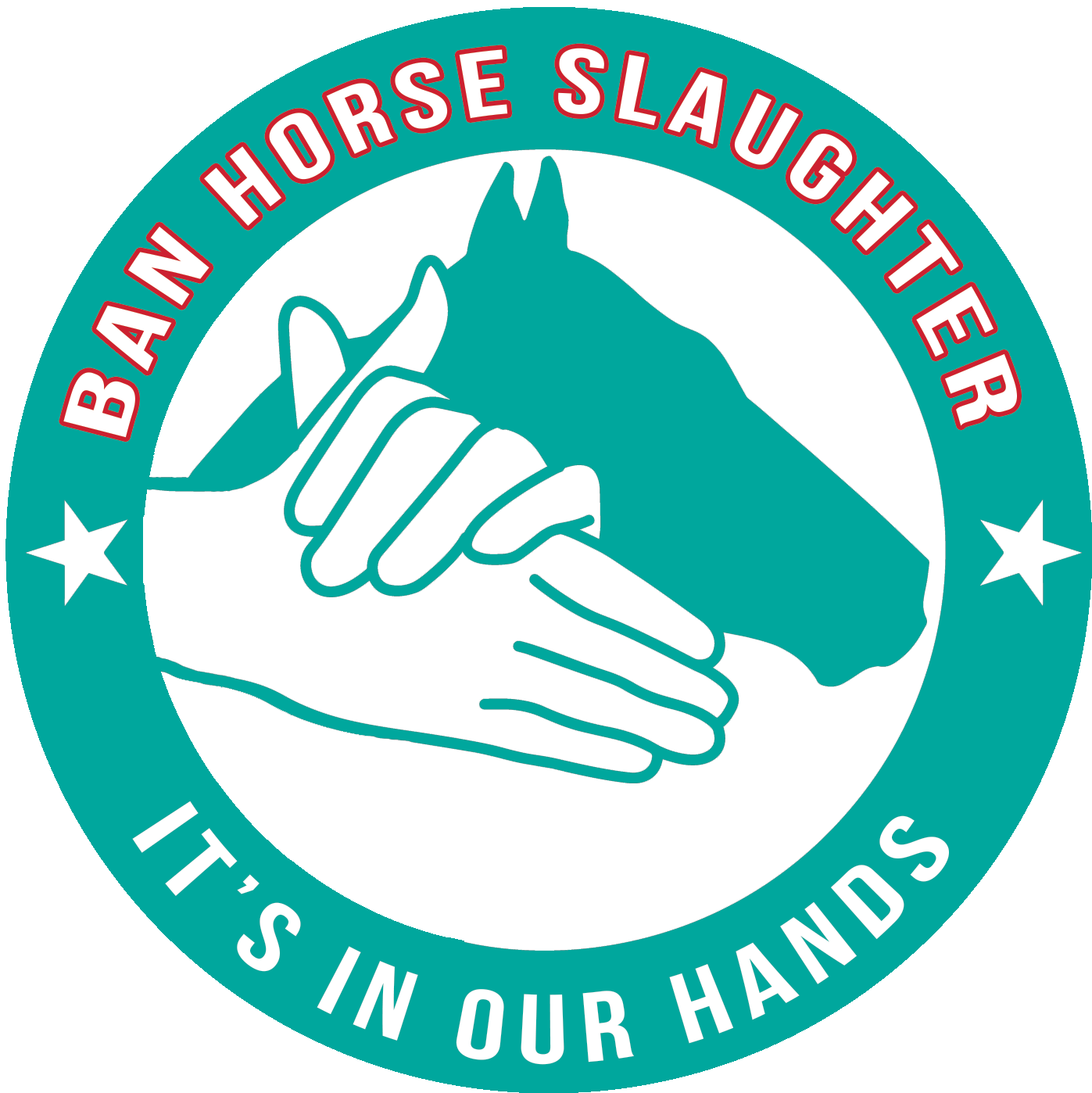Slaughter is Not Euthanasia
We wanted to use this week’s posting to address a single common misconception about the horse slaughter industry. The information below will be helpful to you when speaking with your legislators, the media and your friends and family about the true nature of this brutal business. Over the next few weeks, we will address other myths about this industry that have been spread by those working to keep horse slaughter alive. It is important for you to be well informed as we work to end horse slaughter.
Myth: Horse slaughter is a form of humane euthanasia and should return to the US so there can be proper USDA oversight.
Fact: Horse slaughter is not humane euthanasia.
Webster’s defines euthanasia as “the act or practice of killing or permitting the death of hopelessly sick or injured individuals (such as persons or domestic animals) in a relatively painless way for reasons of mercy.” Slaughter is anything but —it is a brutal and terrifying end for often healthy horses who are shipped from auction to abattoir on crowded cattle trucks without food, water, or rest – often for more than 24 hours. Footage from US slaughter plants exposed horrific suffering: Employees whipping horses in the face, horses who flipped over backward and were injured due to rough and abusive handling, and many horses remaining conscious while shackled and hoisted by a rear leg to have their throats cut.
Having a horse humanely euthanized by a veterinarian costs approximately one month’s keep depending on where you live and is simply a part of responsible horse ownership. Far more horses die naturally and are euthanized each year in the US than slaughtered so options for euthanasia and eventual disposal of their bodies are widely available and cost effective.
“Horse slaughter is not a form of humane euthanasia, nor is it a “necessary evil.” The horse slaughter industry is a predatory one that exists only because there is a profit to be made by fulfilling consumer demand in overseas markets for horse flesh. Rather than aiding horse welfare, horse slaughter results in very tangible animal cruelty and suffering while engendering abuse and neglect. Horse owners have an affordable, ethical choice of what to do at the end of their horse’s life – humane, veterinarian-administered euthanasia. Horse slaughter is not a form of humane euthanasia, but a gross form of animal cruelty.”
- Dr. Nicholas H. Dodman, BVMS MRCVS, hearing testimony before the US House of Representatives Committee on the Judiciary Subcommittee on Crime, Terrorism and Homeland Security, July 31, 2008
Some have even suggested that horse slaughter should return to US soil because at least it could be regulated by the USDA. Horse slaughter, whether in U.S. or foreign plants, can never be humane due to the nature of the industry and the unique biology of horses. It is not correct that the slaughter process in Mexico and Canada are dramatically different than in the US. In fact, the plants that take horses from the US employ similar slaughter methods and are inspected by the EU to ensure a certain level of oversight is met. Long distance transport and the captive bolt method of stunning was not designed for horses, animals that have intense “fight or flight” responses and long necks that they toss when frightened. Horses often endure repeated blows and sometimes remain conscious during dismemberment.
Bringing horse slaughter back to the US will not prevent the suffering of our horses. In fact, documents and photos (The only one we would show is the preview picture on the main page. We will not post any others, but can be viewed through a simple Google search) obtained through Freedom of Information Act (FOIA) request from the USDA show horses following transport in the US to one of the three operating US based horse slaughter plants with broken bones protruding from their bodies, eyeballs hanging by a thread of skin, and open wounds. All kinds of horses, young, healthy, and old are subject to slaughter.







Please be sure to visit our Action Center to send an email to your Representative and both Senators. Bookmark the page and come back regularly to send a new email. Thank you for your efforts.

